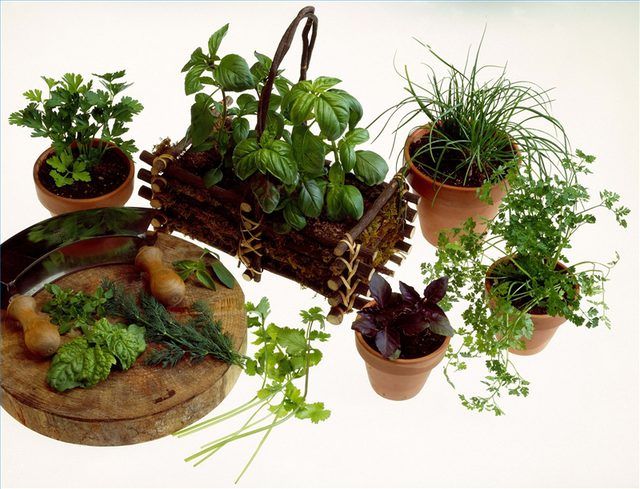Bulbs
Flower Basics
Flower Beds & Specialty Gardens
Flower Garden
Garden Furniture
Garden Gnomes
Garden Seeds
Garden Sheds
Garden Statues
Garden Tools & Supplies
Gardening Basics
Green & Organic
Groundcovers & Vines
Growing Annuals
Growing Basil
Growing Beans
Growing Berries
Growing Blueberries
Growing Cactus
Growing Corn
Growing Cotton
Growing Edibles
Growing Flowers
Growing Garlic
Growing Grapes
Growing Grass
Growing Herbs
Growing Jasmine
Growing Mint
Growing Mushrooms
Orchids
Growing Peanuts
Growing Perennials
Growing Plants
Growing Rosemary
Growing Roses
Growing Strawberries
Growing Sunflowers
Growing Thyme
Growing Tomatoes
Growing Tulips
Growing Vegetables
Herb Basics
Herb Garden
Indoor Growing
Landscaping Basics
Landscaping Patios
Landscaping Plants
Landscaping Shrubs
Landscaping Trees
Landscaping Walks & Pathways
Lawn Basics
Lawn Maintenance
Lawn Mowers
Lawn Ornaments
Lawn Planting
Lawn Tools
Outdoor Growing
Overall Landscape Planning
Pests, Weeds & Problems
Plant Basics
Rock Garden
Rose Garden
Shrubs
Soil
Specialty Gardens
Trees
Vegetable Garden
Yard Maintenance
How to Grow an Herb Garden Indoors
How to Grow an Herb Garden Indoors. You say you're longing to have fresh herbs at your fingertips, but home (at least for the moment) is a gardenless apartment? Don't despair. With a sunny windowsill and a bevy of pots, you can keep yourself supplied with seasonings, teas and potpourri fixings year-round.

You say you're longing to have fresh herbs at your fingertips, but home (at least for the moment) is a gardenless apartment? Don't despair. With a sunny windowsill and a bevy of pots, you can keep yourself supplied with seasonings, teas and potpourri fixings year-round.
Things You'll Need
Fish Emulsions
Flowerpots
Herb Plants
Planting Containers
Potting Soil
Sand
Screen Mesh
Seaweed Extract
Mushroom Compost Makers
Choose a spot that gets at least 4 hours of direct sunlight a day. (Augment the supply with fluorescent lights if necessary.) Most herbs like some ventilation but no direct drafts and no great fluctuations in temperature.
Decide what herbs you want to grow. Study books about herbs and peruse catalogs, and think about what you want to do with your herbs: cook with them, make potpourri or simply enjoy their foliage and fragrance.
Buy your plants at a nursery that specializes in herbs. Your selection will be much bigger than it will at a general nursery, and the staff is almost guaranteed to be enthusiastic and knowledgeable.
Use containers that are at least 8 inches deep and 6 to 8 inches across for each plant. To group multiple plants in a larger container, simply allow 6 to 8 inches between plants.
Lay pieces of screen mesh over the containers' drainage holes and add a premium-quality, well-draining potting soil mixed with coarse sand and mushroom compost. (Nurseries sell it in small bags.) Further ensure good drainage by setting the pots on a tray filled with gravel.
Set the plants into their new quarters at the same depth they were growing in their nursery pots and water them well.
Be careful not to overwater. A good soaking once or twice a week will keep most herbs happy. Stand each pot in about an inch of tepid water until the soil is moist but not saturated.
Feed the plants once a week when they're actively growing, using seaweed extract or fish emulsion.
Harvest indoor herbs with care. Clip outer leaves or sprigs as you need them, but always leave plenty of vigorous growth on the plant.
Tips & Warnings
In general, bushy perennial herbs, such as rosemary, thyme, oregano, sage and winter savory, perform better indoors than those with soft stems, such as mint and tarragon. Scented geraniums make wonderful, fragrant herbal roommates, as do lemon verbena, basil, coriander and some varieties of lavender.
When you visit the herb nursery, ask for suggestions about what to grow - even if you think you know exactly what you want. The plant of your dreams could turn out to be one you've never heard of before.
Indoor herbs don't like the cooking fumes and fluctuating heat in a small kitchen and the hot, dry air directly above a radiator.